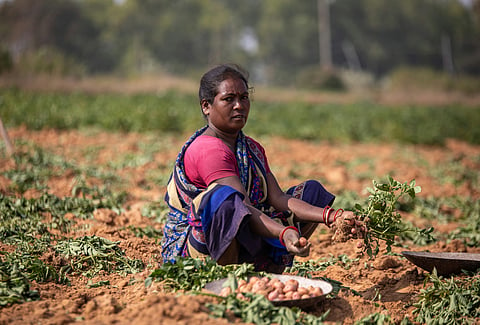

Union Finance Minister Nirmala Sitharaman, in her Union budget 2024-25 speech on July 23, 2024, highlighted the government’s commitment to a “comprehensive review” of the agricultural research framework, aiming to enhance productivity and develop climate-resilient crop varieties.
The plan includes the release of 109 high-yielding and climate-resilient varieties of 32 field and horticultural crops for cultivation within the year.
The announcement comes on the heels of Union Agriculture Minister Shivraj Singh Chouhan’s call to agricultural scientists to close the “lab to land” gap, stressing the need for practical application of research innovations to benefit farmers directly. Chouhan’s remarks were made on July 15, 2024, the founding day of India’s premier scientific organisation, the Indian Council of Agricultural Research (ICAR).
However, the fervent declarations made during the budget presentation contrast starkly with the financial realities. The budget allocation for the Department of Agricultural Research and Education for 2024-25 has seen a marginal increase of just 0.6 per cent from the revised estimates of the previous fiscal year, 2023-24. This modest rise has raised concerns among stakeholders about the adequacy of funding to support the proposed advancements in agricultural research.
In 2023-24, the department saw an increase of around 9 per cent, compared to the year before.
Currently, most of the central allocation for agricultural research is spent on salaries, pensions and administrative expenses.
Sitharaman, in her speech, also mentioned that funding will be provided to the private sector for conducting such research.
This comes at a time when there are already concerns about ICAR signing several memorandums of understanding (MoUs) with various multinational agribusiness companies such as Bayer and Amazon beginning in 2023.
These collaborations aim to develop “solutions” — including crop varieties, practices and technologies and advisories — which can be provided to farmers.
A positive development in the budget document was the announcement was “strengthening of Krishi Vigyan Kendras (KVKs)”, which saw an outlay of Rs 234.89 crore.
KVKs are agriculture extension centres in India. They are present in every district of the country, have a large network, and participate in on-farm testing to assess the location specificity of agricultural technologies, as well as demonstrations to establish the production potential of technologies on farmers’ fields.